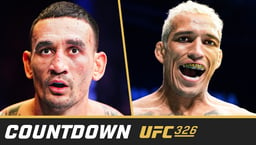
Issue 079
September 2011
Dealing with criticism, wherever it may come from, is key to any fighter’s development
Rosi Sexton is a pro fighter, sports therapist and registered osteopath. She can be contacted via her web page www.rosisexton.com.
One thing you can count on as a fighter is that sooner or later, you’re going to run into criticism. If you’re lucky, it’s constructive criticism from a coach or training partner with the intention of making you better, but it could equally be the less helpful kind that pops up on Internet forums with the clear message “you suck.”
“You try and do better.”
However, well-intentioned the criticism, it’s often the last thing we want to hear. Despite the image a fighter presents to the world, we’re all human underneath and let’s face it, being told that you’re not as good at something as you thought you were hurts. When it’s something you’ve worked hard at and made a lot of sacrifices for, it can hurt a lot. It’s natural to get defensive about it. Maybe the excuses start piling up – in our head, if not out loud. ‘I was sick/injured/having a bad day.’ ‘I had a bad weight cut.’ ‘I’m usually better than that, I just got caught.’ ‘He’s bigger than me.’ ‘You try and do better.’ ‘You don’t know what you’re talking about.’
“I had a bad weight cut.”
Everyone has their own way of dealing with criticism. Some will argue the point and try to defend their performance. Others stay away from discussions and Internet forums for this very reason, preferring to listen to feedback only from people they know and trust.
It’s possible, though, to see all criticism is an opportunity to improve. When dealt with in the right way, it can only make you better. Anyone, however rude or disrespectful, who helps you find a weakness that you can address is doing you a favor.
In my experience, the biggest obstacle to using criticism in a positive way is identifying too closely with your current level of performance. If you depend on being recognized as a badass fighter in order to feel good about yourself, then you’ll resent anything that threatens that. If, on the other hand, you’re more concerned with how good you’re going to be in a year’s time then it makes much more sense to seek out ways that you can improve.
There’s an art to delivering criticism, of course, and the best coaches know this. It’s much easier to act on the information if it’s relatively unemotional, and directed at a specific action or behavior rather than the person. The more specific the instructions the better. For example, ‘You’re getting into trouble in this position because you’re doing ‘x’. Try doing ‘y’ instead,’ works much better than, ‘Your wrestling sucks.’ It can also help if the criticism is tempered by positive comments about what is going right.
What to do, though, when the person critiquing your performance hasn’t read this article, or simply doesn’t care?
“I’m usually better than that, I just got caught.”
The first step is to separate the useful information from the emotional padding and see what’s left. Perhaps there isn’t anything. Not everyone with an opinion has a valid point, and sometimes people are simply wrong. If you assess the comment to be ‘spam’ then dismiss it without expending any more emotional energy. Arguing the point is rarely useful or productive.
Be honest with yourself though and don’t allow yourself to write off a comment if there’s something you could learn from it. In particular, try not to get distracted by the ‘status’ of the person making the suggestion. It’s natural to feel indignant when a less experienced training partner points out something you’re doing wrong, but it’s still possible that s/he may be onto something.
Secondly, turn it into specific positive actions you can take. If you’re not sure, try asking for clarification. ‘So what should I do differently here?’ or, ‘What do you think I could do to improve that?’ Depending on who is offering the advice, you may want to filter any suggestions – or perhaps discuss it with someone else before taking action on it. Even if you decide that the advice is wrong, it can sometimes help you to think about the problem and come up with your own solutions.
“You don’t know what you’re talking about.”
Finally, focus on using the information to improve, rather than worrying about how good you are at the moment. None of us will ever be perfect, all we can do is get as close as we can. Keeping your eyes on that target will prevent you from digging yourself into a rut that stalls your progress, and makes it more likely that you’ll enjoy the journey.










